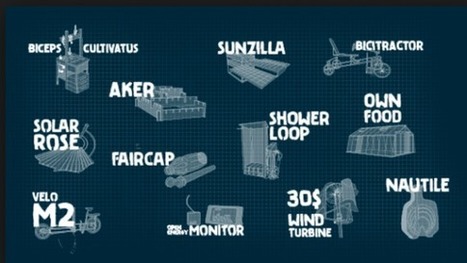Research and publish the best content.
Get Started for FREE
Sign up with Facebook Sign up with X
I don't have a Facebook or a X account
Already have an account: Login
on peer-to-peer dynamics in politics, the economy and organizations
Curated by
jean lievens
 Your new post is loading... Your new post is loading...
|
|














CONFERENCES GIFT ECONOMIES OPEN CALLS P2P ARCHITECTURE AND URBANISM P2P DEVELOPMENT P2P ECOLOGY P2P EDUCATION P2P GOVERNANCE P2P LOCALIZATION P2P RESEARCH P2P TECHNOLOGY